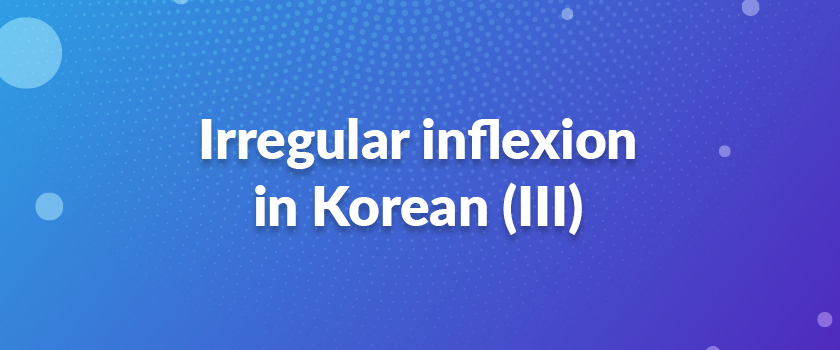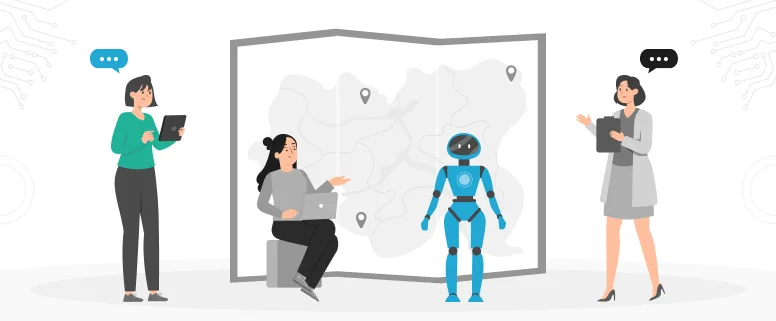6、the irregular inflexion with “ㅎ”: when the last syllable of the adjective “ㅎ” is contacted with the consonans “ㄴ,ㄹ,ㅁ”, the character of “ㅎ” will be lost. What’s more, the vowels “아/어” will become “애” together with the later “아/어”, and “야/여” will become “얘” together with the later “아/어”.
For example: 그렇다 :그렇+ㄴ→그런
+ㄹ→그럴、+면→그러면
+ㅂ니다→그럽니다 (however, currently it is usually be used as그렇습니다.)
This kind of words are like: 빨갛다,파랗다, 노랗다, 하양다, 까맣다, 이렇다, 저렇다, 그렇다, 어렇다 (the word of “좋다” excepted.)
Are you looking for Korean Translation? We are here for your assistance.
For example:
1)—홍단 씨,얼굴아 하얘요.몸이 안 좋아요? Hongdan, you look not so good, are you Okay?
—네,점심 때부터 좀 어지럽네요. Yes, I’m a little dizziness from this afternoon.
2)—한 잔 더 드십시오. Would you like to have more?
—저는 그만 마시겠습니다.저는 술을 마시면 얼굴이 빨개져서 못 마시겠습니다. I can’t drink any more, my face have been red, it’s enough.
3)—왜 이렇게 어깨가 아프지요? My shoulder is hurt, do you know why?
—어제 오래간만에 운동을 해서 그래요. Of course, it should hurt, because you did sports suddenly without doing it for a long time.
4)—추우세요?입술이 파래졌어요. Are you cold? Your lip looks not so good.
—너무 추워요. It’s too cold.
5)—일요일날 대청소를 하는 게 어때요? Let’s have a clear this Sunday, shall we?
—그럽시다. Fine.
7、The dropping for the vowel “ㅡ” of the stem: Most of the predicates, whose stem ends with the vowel “ㅡ”, when they are contacted with vowels of “아/어”, “ㅡ” will be dropped usually. When the former syllable of “ㅡ” is “ㅏ” or “ㅗ”, “ㅡ” will be changed into “아”, when the former syllable of “ㅡ” is “ㅏ”, the vowels ( except “ㅗ”) or there is no other syllable, “ㅡ” will be changed into “어”.
Read Also: Korean culture — hanbok
For example:아프다→아파요,아파서,아팠어요
기쁘다→기뻐요,기뻐서,기뻤어요
쓰다→써요,써서,썼어요
In the followed words, “ㅡ” usually drops: 아프다, (배가)고프다, 바쁘다, 나쁘다, 예쁘다, 기쁘다, 슬프다, 크다, 쓰다
For example:
1)—어제 왜 산에 안 갔습니까? Why did not go to climb yesterday?
—다리가 아파서 안 갔습나다. My legs are hurt, that’s the reason.
2)—요즘도 바쁘십나까? Are you busy recently?
—지난 주까지 바빴습니다.그렇지만 이번 주는 안 바쁩니다. I kept being busy last week, but I can have a break this week.
3)—어디에 갔다오셨습니까? Where did you go?
—배가 고파서 밥을 먹으러 식당에 갔다왔습나다. I’m hungry, went to have a meal just now.
4)—어제 자기 전에 무엇을 하셨습니까? What did you do before going to sleep last night?
—친구에게 편지를 썼습니다. Wrote a letter to one of my friend.
Take a look at how we helped our client by localizing their project for Korean language. Click here to read the complete case study



